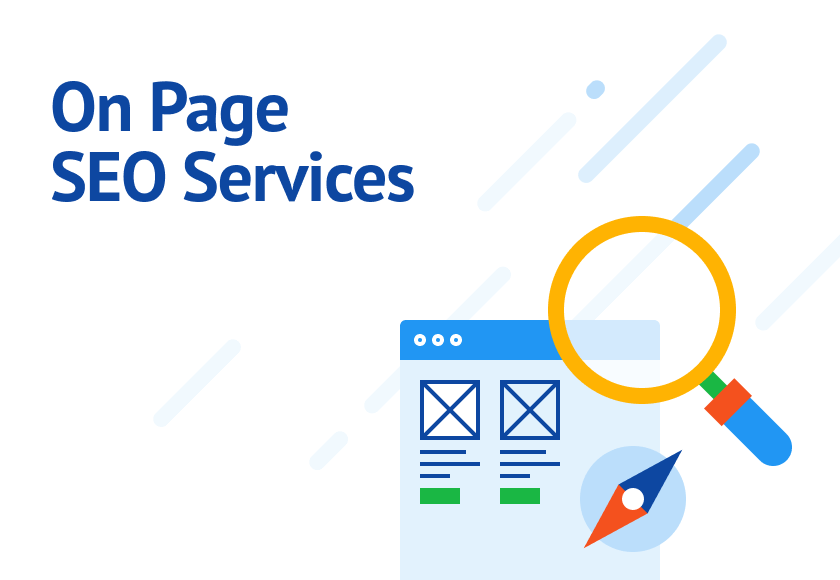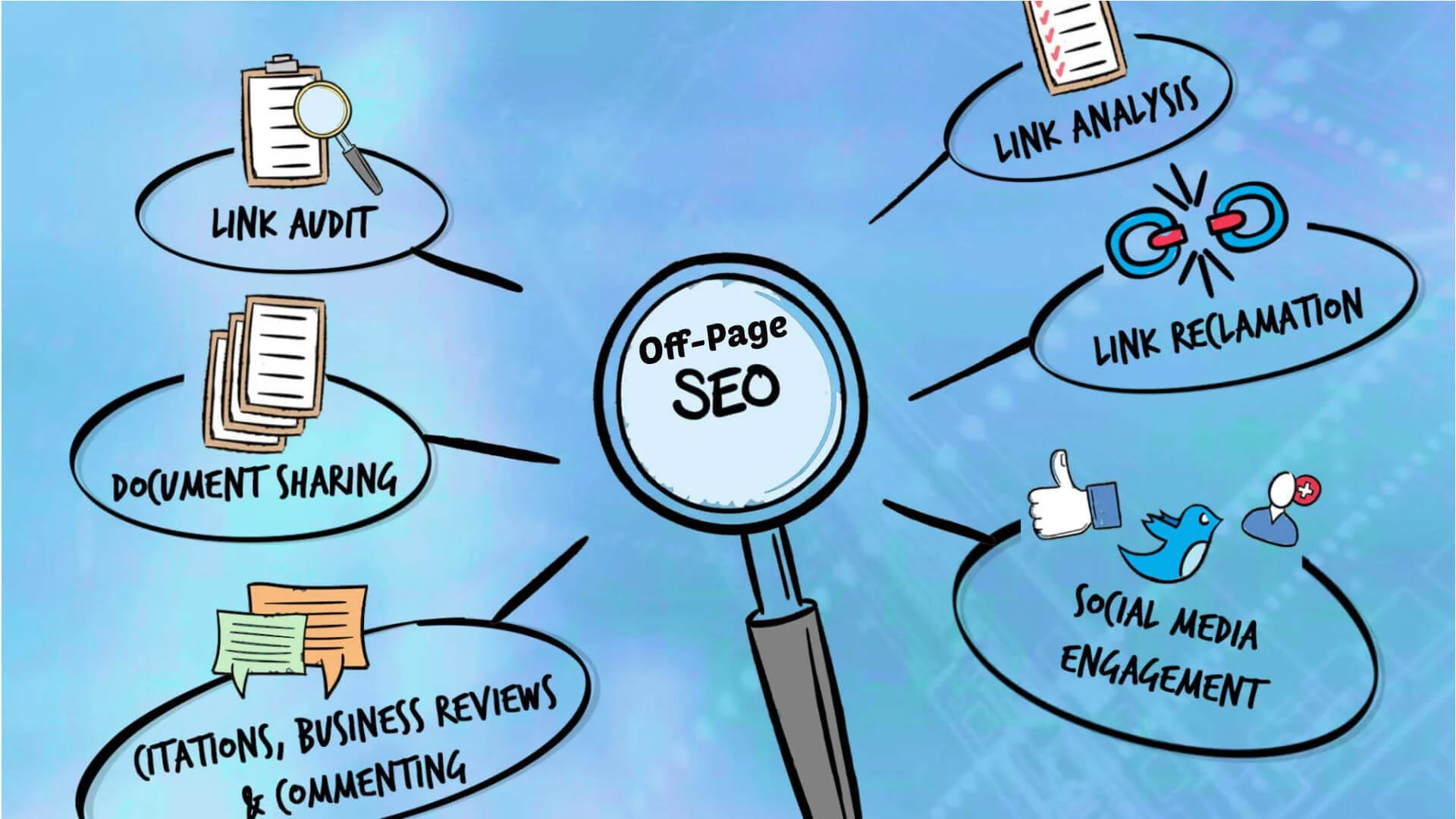To draw in nearby customers, you’ll want to optimize your Google Business Profile with accurate information, as 86% of people look up business locations on Google Maps. Conducting local keyword research is also essential, integrating location-specific keywords into your SEO strategy to attract nearby customers.
Creating locally relevant content and building high-quality local citations can also boost your local online presence. You’ll also want to engage in local link building, utilize location-specific landing pages, and leverage schema markup for SEO. By implementing these tactics, you’ll be well on your way to increasing your online visibility and driving more foot traffic – and that’s just the beginning of creating a robust local SEO strategy.
Optimize Your Google Business Profile
To establish a strong local SEO foundation, you need to optimize your Google Business Profile, as it’s often the first point of contact between your business and potential customers searching online. By doing so, you’re setting yourself up for success, as 86% of people look up the location of a business on Google Maps.
Confirm your profile is complete with accurate information, as 68% of people contact a business directly from search results. This also means keeping your profile updated with new photos and posts, as businesses with photos receive 42% more requests for directions.
You should also utilize your Google Business Profile to showcase your business hours, services offered, and customer reviews. Online reviews are essential, as 72% of consumers trust them as much as personal recommendations. Make sure to respond to customer reviews promptly, as 89% of consumers read businesses’ responses to reviews.
Conduct Local Keyword Research

By integrating location-specific keywords into your SEO strategy, you can effectively target nearby customers and enhance your online visibility in local search results. This is where local keyword research comes in, aiding you in identifying pertinent keywords that resonate with your local audience.
To conduct local keyword research, utilize tools like Ahrefs and Google Ads Keyword Planner. These tools enable you to generate location-based keyword variations, which can significantly enhance your visibility in local search results.
For instance, instead of targeting ‘coffee shops,’ you can target ‘coffee shops in New York City’ or ‘coffee shops near me.’ Evaluating search volume and competition for each keyword is also essential, as it helps you prioritize your efforts on the most impactful keywords.
Regular monitoring and adjustments to your keyword strategy are vital for optimizing your local search performance. By refining your local SEO approach through relevant keywords, you’ll be better equipped to attract nearby customers and drive more foot traffic to your business.
Effective local keyword research is a game-changer for any business looking to dominate local search results.
Create Locally Relevant Content

Now that you’ve conducted local keyword research, it’s time to create content that resonates with your nearby customers.
You’ll want to target local search queries by incorporating location-based keywords and phrases that your target audience is using.
Target Local Search Queries
How do you ensure your business appears at the top of search results when nearby customers search for products or services like yours? You can start by targeting local search queries. This involves optimizing your content for keywords that include phrases like ‘near me’ or ‘in [city].’ By doing so, you’ll be more likely to attract nearby customers who are actively seeking your products or services.
Here are some tips to help you target local search queries effectively:
- Use location-based keywords: Incorporate keywords that include your city, state, or zip code into your content.
- Create location-specific content: Write about local events, news, and community information to establish a strong connection with nearby customers.
- Use local business information: Make certain your website includes accurate and up-to-date information about your business, including your address and phone number.
- Optimize for mobile: Many local searches happen on mobile devices, so make sure your website is optimized for mobile to improve visibility in local search results.
Focus on Geographic Relevance
To attract nearby customers searching for products or services in their area, you need to create content that’s relevant to their local interests and needs. This means producing local content that resonates with your target audience and addresses their unique concerns. By doing so, you’ll establish a connection with the community and attract local prospects who are more likely to convert.
Geographic relevance is key to improving your local SEO rankings. When you create content that’s specific to your area, you’ll increase your chances of appearing in ‘near me’ searches. This is because search engines can identify your content as relevant to a particular location, making it more visible to nearby customers.
Additionally, providing localized content can boost engagement and conversions from customers looking for solutions that cater to their local needs.
Use Location-Based Keywords
Incorporating location-based keywords into your content is essential for targeting nearby customers searching for local businesses and establishing a strong online presence. By using local keywords, you can create locally relevant content that helps your website rank higher in local search results and attract local traffic.
Here are four key tips to help you use location-based keywords effectively:
- Research local search trends: Identify popular location-specific keywords that resonate with your target audience.
- Use city names and neighborhoods: Incorporating city names, neighborhoods, and landmarks in your content can improve your visibility to local customers.
- Optimize metadata and headings: Use geo-targeted keywords in your website’s metadata and headings to increase your chances of ranking for local searches.
- Create location-specific content: Develop content that caters to the unique needs and interests of your local audience, using location-based keywords naturally throughout.
Build High-Quality Local Citations

As you focus on building high-quality local citations, you’ll discover the significant benefits they bring to your local SEO rankings and overall online visibility.
By establishing consistent and accurate NAP information across reputable online directories and review sites, you’re helping Google verify your business’s credibility and relevance for local search results.
In the process, you’ll also increase your chances of driving more foot traffic and online conversions, ultimately growing your customer base.
Benefits of Local Citations
Building high-quality local citations is an important step in establishing your business’s online presence, and by doing so, you’ll not only improve your local search rankings but also increase your credibility in the eyes of potential customers.
Local citations are online mentions of your business name, address, and phone number (NAP) that help build credibility and improve local search rankings. By incorporating local SEO best practices, you’ll boost your search visibility and attract nearby customers.
Here are four benefits of building high-quality local citations:
- Boosts Local Search Rankings: High-quality local citations from reputable sources can enhance your local search rankings, making it easier for customers to find you.
- Increases Credibility: Consistent NAP information across all citations establishes trust with potential customers and search engines.
- Improves Search Visibility: Local citations play a significant role in local SEO by validating the existence and legitimacy of your business in a specific geographic area.
- Drives Foot Traffic: By establishing a strong online presence, you’ll attract nearby customers and increase more foot traffic to your physical location.
Building Citation Authority
To establish a strong online presence, you need to focus on creating high-quality local references that consistently list your business’s name, address, and phone number across relevant directories and platforms. This is important for building reference authority, which greatly boosts your website’s authority in local search results.
By listing your business in reputable sources, you improve visibility to nearby customers and increase your chances of ranking higher in local search rankings.
A consistent NAP (Name, Address, Phone Number) is crucial for local SEO success, as it helps search engines like Google verify your business’s identity. Inconsistent NAP information can harm your local search visibility and credibility.
You want to make sure that your business’s NAP is accurate and up-to-date across all local references.
Google considers the number and quality of references when determining local search rankings, so it’s important to prioritize building high-quality local references.
Engage in Local Link Building

By securing backlinks from relevant local publications and websites, you can greatly enhance your website’s authority and visibility in a specific geographic area. Local link building is an essential tactic for boosting your local SEO efforts, as it helps establish your business as an authority in the local community.
To get started with local link building, consider the following strategies:
- Collaborate with local influencers: Reach out to influencers in your area and offer them free products or services in exchange for promotional content and backlinks.
- Appear in local publications: Craft a compelling press release or pitch story ideas to local journalists and bloggers.
- Support local events: Sponsor local events, charities, or initiatives to get your business’s name out there and attract backlinks.
- Optimize your business listings: Verify your business’s listings are accurate and consistent across local directories and websites.
Maximize Online Review Potential

As you optimize your local SEO strategy, it’s essential to maximize your online review potential to attract nearby customers.
You can start by encouraging your satisfied customers to leave reviews on your Google My Business listing and other relevant platforms, which can increase conversions by up to 270%.
Encourage Online Reviews
Maximizing online review potential starts with actively encouraging your customers to share their experiences with your business. With 93% of consumers influenced by reviews when making a purchasing decision, generating online reviews should be a pivotal part of your local SEO strategy.
To increase online reviews, try the following methods:
- Use review request emails: Integrate email requests to get customers to review their latest purchase. Include an inviting subject line, engaging opening, a call to action, and finish it with a nice thank-you to show that you genuinely care about your customer.
- Optimize store receipts with a simple url: Including your businesses storefront URL along with Google generated QR for that will invite customers into sharing images & reviews regarding purchases directly linking to review. To facilitate this task consider buying from a well-constructed reliable receipt designer who sells pre-made fully modifiable sets.
- Conduct proactive engagement & timely follow ups in establishing a personalized feedback method you can simply start collecting high-quality first-hand product testimonials.
- Partner with happy reviewers. Provide incentives with special services based on products offered when building a high-end experience service.
The right customers will make an extraordinary improvement in review amount in as little time possible by leaving positive online reviews ultimately pushing your Google Local Search Placement.
Leverage Review Responses
Responding promptly and professionally to online reviews is essential for building trust with potential customers and demonstrating your dedication to customer satisfaction. When you engage with customers through review responses, you show them that you value their feedback and care about their experience with your business. This is especially important on platforms like your Google Business Profile (GBP), where customers are actively seeking out information about your business.
Effective review response strategies are a key component of online reputation management. By responding to reviews, you can improve your online reputation and even increase customer advocacy and loyalty towards your brand. In fact, studies have shown that businesses that respond to reviews can see an average of 2.7-star improvement in their overall rating.
Don’t be afraid to engage with negative reviews, either – responding promptly and professionally can show potential customers that you’re committed to customer satisfaction. By leveraging review responses, you can maximize your online review potential and draw in more nearby customers. So, make responding to reviews a priority and watch your online reputation thrive.
Use Location-Specific Landing Pages

You can greatly enhance your local search visibility by creating location-specific landing pages that target specific geographic areas where your customers are searching for products or services like yours. By incorporating location-specific content into your landing pages, you can improve your chances of appearing in local search results and drive higher conversion rates.
Here are four key benefits of using location-specific landing pages:
- Increased local search visibility: By targeting specific geographic areas, you can increase your visibility in local search results and attract more nearby customers.
- Improved relevance: Location-specific content helps you connect with customers searching for products or services in their area, making your business more relevant to their needs.
- Higher conversion rates: By catering to the needs and preferences of nearby customers, you can drive higher conversion rates and boost sales.
- Better customer insights: Location-specific landing pages can provide valuable insights into customer behavior and preferences, helping you refine your Local SEO strategy and improve overall performance.
Enhance Mobile Search Experience

Mobile searches dominate local queries, and a seamless mobile experience is vital to capturing the attention of nearby customers and driving them to your doorstep. You need to make sure that your website is optimized for mobile devices, as 76% of mobile searches result in a same-day store visit.
Google indexes and ranks websites based on their mobile version, so a responsive design is essential for a smooth user experience. This means that your website should adapt to different screen sizes and devices, providing an ideal viewing experience for your users.
To further enhance your mobile search experience, consider implementing structured data on your website. This will help search engines like Google understand the content and context of your website, making it more visible in search results. You can also use tools like Google Mobile Usability tool to analyze and optimize your website for mobile.
Leverage Schema Markup for SEO

One effective method to enhance your local SEO performance is to utilize schema markup, which aids search engines like Google in better comprehending your website’s content and offers users with more detailed, enlightening search outcomes. By integrating schema markup, you’re essentially providing search engines with additional context regarding your business, leading to increased click-through rates and enhanced SEO performance.
Here are four strategies to utilize schema markup for SEO:
- Utilize Local Business Schema: This form of schema markup offers search engines with crucial information about your business, like your name, location, phone number, and business hours.
- Connect to your Google Business Profile (GBP): By connecting your schema markup to your GBP, you can offer search engines even more insight into your business.
- Organize your data: Employ schema markup to present search engines with organized data about your business, including reviews, ratings, and menus.
- Incorporate rich snippets: Schema markup can help your business to stand out in search engine result pages with rich snippets, like ratings and reviews. By including schema markup, you can provide search engines with the necessary details to deliver users with more informative search outcomes.
Monitor and Analyze Local Performance

With schema markup in place to enhance search engine comprehension of your website, regularly monitoring and analyzing local performance becomes the next step in refining your local SEO strategy to guarantee it’s effectively reaching nearby customers.
You’ll want to utilize tools like Google Analytics and Google Search Console to track website traffic, keyword rankings, and user behavior. This data will help you understand how your local SEO efforts are paying off and identify areas for improvement.
As you monitor and analyze local search performance metrics regularly, you’ll be able to make data-driven decisions for optimizing your local SEO strategy. By adjusting tactics based on performance data, you can continuously improve your local SEO efforts and attract more nearby customers.
Regularly review and analyze key metrics such as website traffic, keyword rankings, and user engagement to gauge the effectiveness of your local SEO tactics. Use performance data to optimize your local SEO strategy, ensuring that you’re effectively drawing nearby customers to your business. By doing so, you’ll be able to refine your approach and boost your local SEO performance.
To Recap
As you weave the tapestry of your local SEO strategy, each thread carefully considered, you’ll find that the fabric of your online presence strengthens, drawing in nearby customers like a beacon.
By optimizing your Google Business Profile, crafting locally relevant content, and leveraging schema markup, you’ve constructed a sturdy foundation.
Monitor and analyze your performance, making adjustments as needed, and watch your local SEO efforts flourish, guiding customers to your doorstep.








